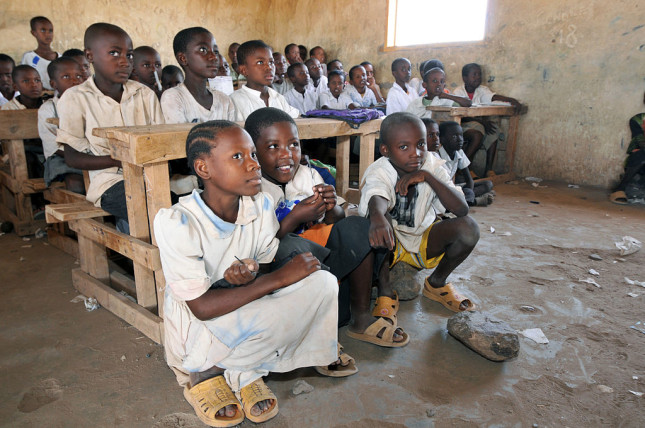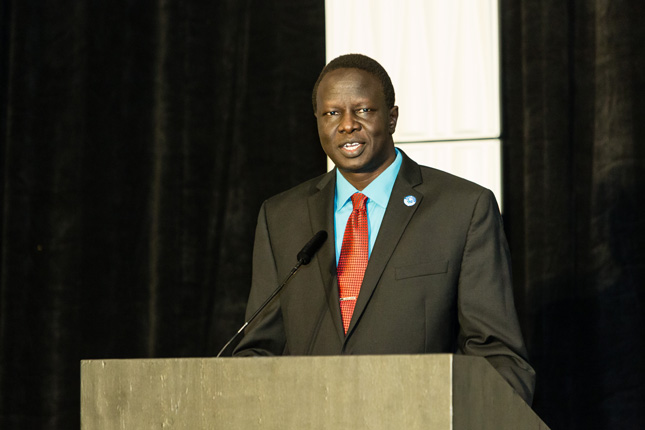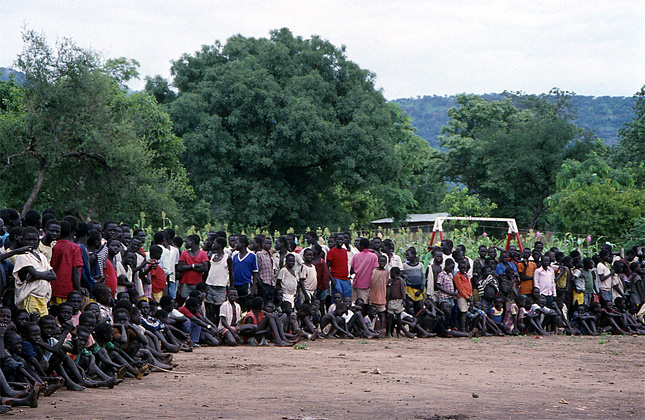
John Thon Majok
John Thon Majok is the Director of Refugee and Forced Displacement Initiative (RAFDI) at the Woodrow Wilson International Center for Scholars where he is also the Deputy Director of Development and Senior Director of Grants Management. He was previously a Senior Program Analyst with the Global Risk and Resilience Program where he started as a Program Associate in 2013.
Majok has worked with the U.S. Department of State’s Bureau of Educational and Cultural Affairs, the Council of American Overseas Research Centers, and the USAID-funded Diaspora Skills Transfer Program implemented by the Academy for Educational Development. In 2004, Majok served as a congressional intern for Arizona Congressman at the U.S. House of Representatives. Majok’s perspective on forced displacement and refugee issues are informed by his lived experience and scholarship.
A former refugee from South Sudan, Majok lived for thirteen years in refugee camps in Ethiopia and Kenya. He has a B.S. in Public Administration and Policy from the University of Arizona and an M.A. in Public Administration from George Mason University.
-
A Generation in Limbo: Protracted Refugee Situations in Kenya Must Be Addressed
›August 15, 2019 // By John Thon Majok
The 1951 Refugee Convention spells out refugee rights, including the right to freedom of movement. Yet 68 years later, 15.9 million people are trapped in prolonged exile, living as refugees for anywhere from 5 to 47 years and counting. The unprecedented duration of protracted refugee situations (PRS) and the increasing scale of forced migration demand a comprehensive response beyond humanitarian assistance.
-
Keep Moving Forward: Refugee Resilience and Citizen Diplomacy
›August 15, 2018 // By John Thon Majok
More than 17 years ago, I came to the United States as part of a refugee group known as the “Lost Boys” of Sudan. In 1987, civil war separated me from my parents for almost 10 years. After 13 years of living in limbo in refugee camps, I was given the opportunity to settle in Tucson, Arizona, where I quickly integrated myself into the American society as a productive citizen. My story demonstrates the resilience paradox: Exposure to prior hardships helps us become more resilient.
-
A Case for Refugee Resilience: Reflection on the Lost Boys’ Story of Perseverance
›
Fifteen years ago last month, I was brought to America through the U.S. Refugee Resettlement Program after having lived in refugee camps in Ethiopia and Kenya for more than a decade. As I reflect on my experience, it is my hope that it will inspire others and help inform dialogue on forced migration so that refugees are perceived not just as victims, but models of resilience.






